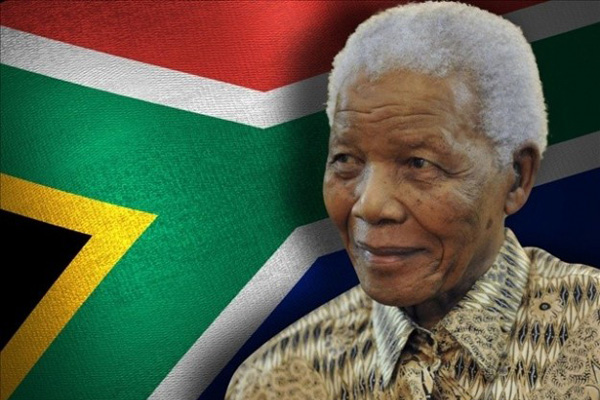In the context of a conference on women’s reproductive health rights to commemorate the 10th anniversary of the adoption of the Protocol to the African Charter on Human and Peoples’ Rights on the Rights of Women in Africa (Women’s Rights Protocol) on 9 and 10 December, two prominent activists delivered inspiring words to conference participants and external guests. Dr Pregs Govender, Deputy Chairperson of the South African Human Rights Commission, delivered the keynote address that opened the conference, and Mr Stephen Lewis, Co-Director of AIDS-Free World, presented the 3rd annual Helen Kanzira Lecture. Both speakers invoked the ideals of the late Nelson Mandela and referenced the impact of his leadership and life.
Referring to the death of Nelson Mandela, Pregs Govender cautioned against making Madiba part of a sentimentalized imagery, and called for participants not to deify him, but to draw the values that should inspire us, and that we should aspire to, from his life’s work. These values include the provision for equality under the South African Constitution in which he was very influential.Pregs highlighted the importance of budgetary allocations for the realization of women’s socio-economic rights. She called on those interrogating budgets from a gendered perspective to ask to what extent each aspect of a budget represents a choice that advances gender equality. She further drew attention to the way in which macro-economic policies impact on the rights of women. For example, such policies compel women involved in subsistence farming to buy new seeds every year due to the prescriptions of multinational companies.
In South Africa, rural women are still in the worst position as far as socio-economic rights are concerned. There still is an alarming overlap between those with the greatest need of basic amenities and the Bantustans demarcated during days of apartheid.
Pregs also drew attention to the need for access to information, to enable women to assert their socio-economic rights. Unfortunately, in South Africa, where the South African Human Rights Commission has the obligation to monitor compliance under access to information legislation, there is 90% non-compliance rate among state institutions in respect of their access to information.
Stephen Lewis’ lecture, entitled, “The power of advocacy” inspired those present to be relentless in pursuit of social justice. Referring to the struggle for gender equality as the single most important global issue, he lamented the failure of states to fulfill international commitments related to the advancement of women’s human rights. For example, he noted that Millenium Development Goal 5, which commits states to improve maternal health, has seen the least progress globally compared with the other MDGs. Between one quarter and a half a million lives are lost each year in childbirth despite the preventable nature of these deaths. Stephen attributed the lack of progress toward reducing maternal mortality to indifference by governments to women’s realities and an underlying notion of the expendability of more than half the world’s population.
Stephen also highlighted the failure of governments globally to provide treatment to all those who are living with HIV. He noted that the ‘crowing’ by international organisations that 10 million people globally are on treatment, is unfounded. In fact, 25 million people should be on treatment according to WHO Guidelines. He also expressed outraged at the failure to respond to the sixteen to seventeen million children orphaned due to HIV, 95% of which live in Africa. World leaders are failing to respond to the pandemic and there is a ‘monumental job that still has to be done’ towards an AIDS-Free World.
AIDS-Free World has embarked on a number of successful advocacy campaigns, a few of which were highlighted by Stephen as examples of the power of advocacy. For example, AIDS-Free World was at the helm of advocacy for a dedicated UN agency for women, something that is now a reality as a result of persistent lobbying, in the form of UNWomen.
In concluding his presentation, Stephen advised those present to never be intimidated by people in high places and never give up. It was clear that his own life’s work has been an embodiment of that advice.
At the conference, numerous presentations were made on aspects of the Women’s Rights Protocol
The support of the Norwegian government, which is acknowledged with thanks, made these events possible.
For more information, please contact
Frans Viljoen, Centre for Human Rights,
Tel: 012-420-3228
Email: frans.viljoen@up.ac.za
